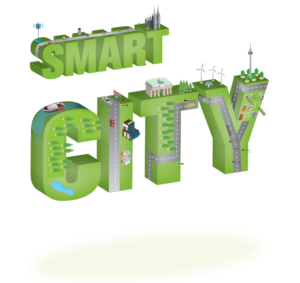- Smart city revenues will double in the coming years to reach 43.8 billion Euro
- Study reveals opportunities for companies and cities in the German smart city market
- Companies from widely disparate industries are positioning themselves along the smart city value chain
In the coming years, the smart city market will prove to be one of the fastest growing sectors, both globally and in Germany. According to the study “The German Smart City Market 2017-2022. Facts and Figures”, published by eco and Arthur D. Little, the turnover of this sector in Germany will be approximately 20.4 billion Euro in 2017. By 2022, German revenues will have more than doubled to reach around 43.8 billion Euro – this corresponds to an average annual growth of 16.5 percent.
“Smart city concepts offer answers to the challenges of urbanization,” declares Harald A. Summa, CEO of eco – Association of the Internet Industry. “Amongst these are solutions for a constant increase in mobility, for improved air and environmental quality, and for an aging population.” The Internet of Things will make it easier for municipalities and citizens to cater adequately for older people, whilst simultaneously reducing traffic jams and emissions by means of smart traffic concepts.
Smart cities master the challenges of urbanization
“The smart city market is extremely interesting, both for the Internet industry and for companies from other sectors,” says Lars Riegel, Principal at Arthur D. Little GmbH. “German firms must begin to bring appropriate products and services onto the market with test customers and reference projects. Only by doing so will they get their chance in the large mega-projects like the ones already being carried out internationally. In the smart city ecosystem, companies from the most diverse of sectors work together – companies who are not proactively open for collaborations do not stand a chance. This presents major challenges for companies in Germany,” stresses Riegel.
The study predicts that future-oriented mobility strategies, such as those already implemented by smart cities Vienna or Dubai, will also gain ground in Germany. The area with the largest market volume in the smart city ecosystem is and will remain the “Transport and Logistics” segment. Intelligent parking systems, smooth interlinking of different traffic systems, and intelligent traffic management are some of the services covered by this segment. The area of “IT Security and Network Infrastructure” is also benefiting from particularly large investment – with revenues of around 3.5 billion Euro in 2017 and an average annual growth of over 13 percent. Taken together with the segments “Physical Security” – comprising audiovisual surveillance, intelligent access control systems, and identification management – and “Building Automation,” these four growth segments will command over 65 percent of the total smart city market in 2017.
Smart education and health infrastructures as growth drivers
With annual growth of around 27 percent, the market segment “Education” is set to experience particularly strong growth. The digitalization of educational institutions is still in its infancy, with high expenditures expected to be incurred in the coming years for hardware, software, and services such as cloud platforms and digital learning content.
The study also forecasts high levels of investment in “Health Infrastructure”. Mobile health devices such as portable blood sugar measurement appliances are driving this development. The aging population will increasingly benefit from digital patient files and personal health management.
A comprehensive smart city approach will achieve the desired objective
“If German cities want to rise to the ranks of leading smart cities in the coming years, they will have to work together more closely and find a holistic approach,” recommends Harald A. Summa. This means finding a coherent strategy that integrates a multitude of different smart city services – from mobility, to energy management, right through to security solutions. That can be best achieved with a cross-segmental smart city platform which acts as a nexus for all services.
The Management Summary of the study is now available free of charge for all interested parties on request, by contacting members@eco.de
The complete study “The German Smart City Market 2017-2022. Facts and Figures” will be available shortly. eco members can receive a copy of the complete study free of charge, and non-members can purchase the complete study for €149, also by contacting members@eco.de.




